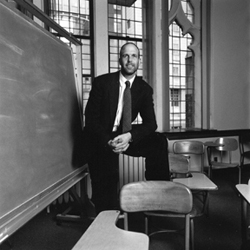Phone Them and They Will Come
"There's a clear connection between African Americans' high rates for developing and dying from colon cancer and their low rates of screening at the age when colon cancer becomes a significant risk," said Basch. "This study is the first to demonstrate that telephone outreach can dramatically increase the rate of CRC screening in an urban minority population. By providing such screening, health insurers and employers could find a significant reduction in the human and financial toll taken by colon cancer."
From 1992--2001, CRC incidence for black men was 13.2 percent higher than for white men and 21.7 percent greater for black women than for white women. Annual mortality was 34 percent greater for black men than for white men and 38 percent greater for black women than for white women.
While prior research has demonstrated the effectiveness of telephone outreach to motivate cancer screening, the TC study is the first to show that the technique can increase CRC screening in a predominantly black population.
The study focused on a mainly minority population in the
The impact of phone intervention far exceeded the researchers' expectations. Those who received telephone education were more than four times as likely to follow through with CRC screening as those who received printed material.
More specifically, 61 people in the phone intervention group (27 percent) underwent CRC screening within six months of receiving phone contact, whereas only 14 people in the control group (6 percent) underwent screening. Of those who underwent screening after receiving phone education, 18 received medically significant diagnoses, compared to three in the control group.
Of the 456 study participants, 288 were black, 74 white and 90 "other." About 75 percent (324) had incomes under $50,000, and fewer than half (213) had more than a high school education. There were 324 women and 132 men.
"It is encouraging to find that telephone outreach can have a strong positive impact on the health-related behavior of this high risk urban minority group," said Basch. "Indeed, the impact of the phone intervention surprised us because it exceeded that of earlier studies that did not focus on minorities. The inference is that phone intervention may be particularly effective among groups who are less likely than the general population to have participated in screening."
Published Tuesday, Jan. 23, 2007
